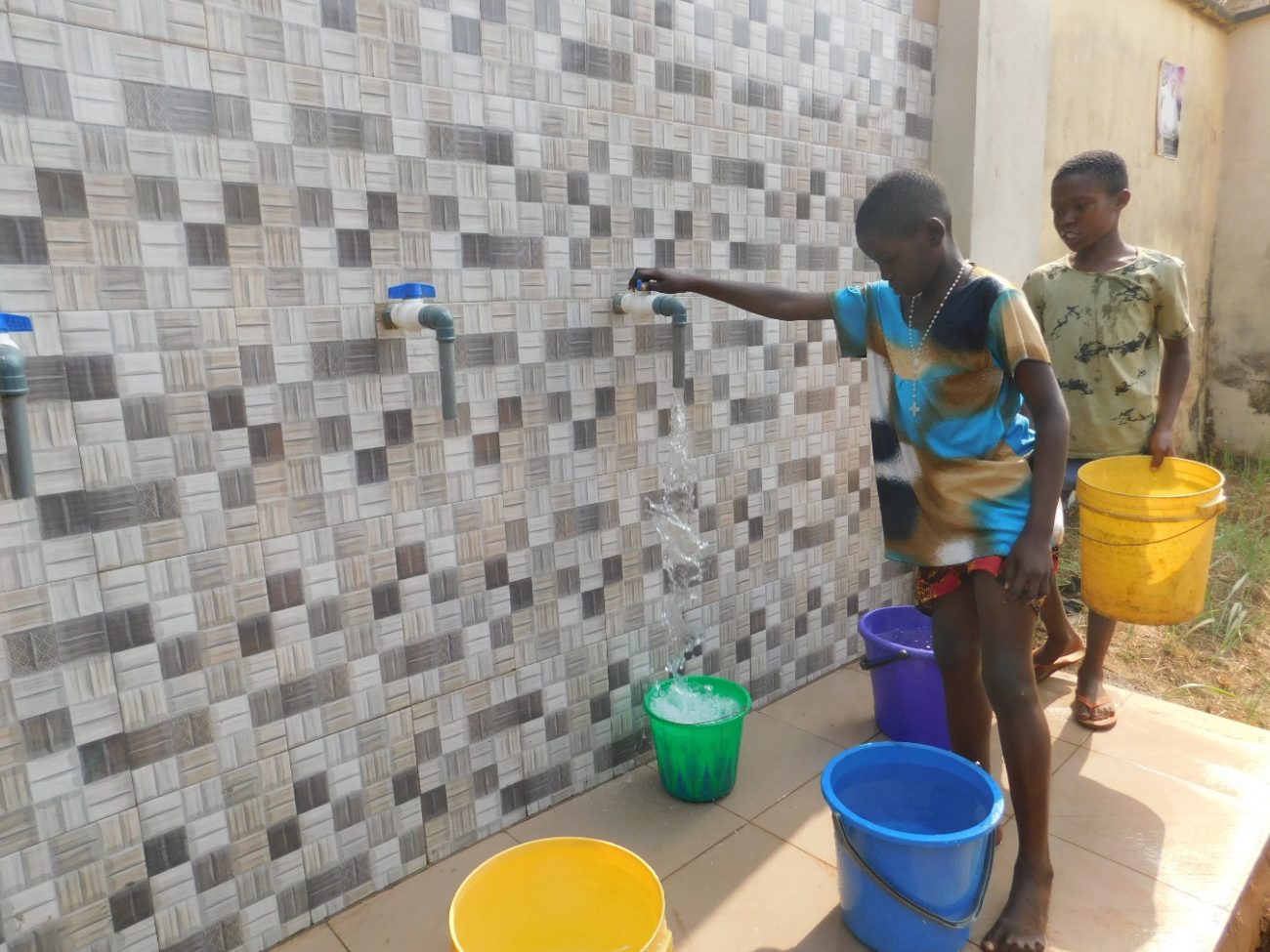
NIGERIA: More than 20,000 people across 5 communities have access to clean water thanks to Salesian Missions ‘Clean Water Initiative’
Clean water access will help improve the health and hygiene of people in these communities as well as curb the outbreak of disease.
NEW ROCHELLE, NY (Feb. 20, 2020) Five communities in Nigeria have clean water access thanks to donor funding through Salesian Missions “Clean Water Initiative.” The borehole projects have been completed in the Nigerian states of Bagbe, Litaye, Ondo, Akwa Ibom and Imo. Due to geographic conditions, there is very little potable water in this region and people are forced to travel long distances to access clean water for their daily needs or rely on rain and river water, which can sometimes be contaminated.
UN-Water estimates that worldwide 2.1 billion people lack access to safely managed drinking water services and by 2050, the world’s population will have grown by an estimated 2 billion people, pushing global water demand up to 30 percent higher than today. One in four primary schools has no drinking water service, with students using unprotected water sources or going thirsty.
For those who have no access to clean water, water-related disease is common with more than 840,000 people dying each year from water-related diseases. UN-Water notes that more than 700 children under 5 years of age die every day from diarrheal disease linked to unsafe water and poor sanitation.
The five new boreholes will provide clean water, reduce outbreaks of waterborne diseases and eliminate the need for traveling hours each day in search of water. More than 20,000 poor children and families will benefit from this life-saving project.
“Water is essential for life, and it’s critical that Salesian programs around the globe have access to safe, clean water for the health and safety of those we serve,” said Father Gus Baek, director of Salesian Missions, the U.S. development arm of the Salesians of Don Bosco. “Improving water and sanitation facilities brings a sense of dignity to communities and promotes proper hygiene and safe drinking water. This also reduces the number of waterborne illnesses that can affect those in our schools, keeping them away from important study time.”
According to UNICEF, Nigeria is Africa’s most populous country and the ninth most populous country in the world. With an estimated population of 150 million, one in every five Africans is a Nigerian. The country has been undergoing explosive population growth and has one of the highest growth and fertility rates in the world. By United Nations estimates, Nigeria will be one of the countries responsible for most of the world’s total population increase by 2050.
While Nigeria has the second strongest economy in Africa, it also has extreme rates of poverty with 100 million people living on less than $1 a day. About 64 percent of households in Nigeria consider themselves to be poor while 32 percent of households say their economic situation had worsened over a period of one year, according to UNICEF. Poverty still remains one of the most critical challenges facing the country and population growth rates have meant a steady increase in the number of people living in conditions of poverty.
###
Contact: [email protected]
